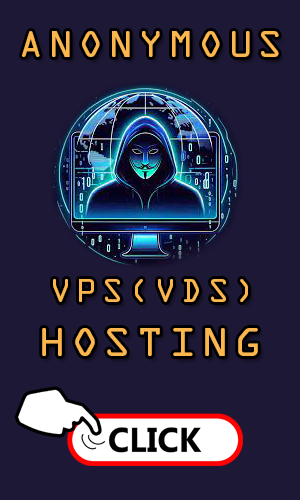Instead of YouTube and Instagram. How to make money on blockchain alternatives
There are many blockchain platforms for freelancers, bloggers, as well as streaming and video publishing. We tell you how best to take the first steps when getting to know them
Along with the blocking of many popular platforms for online earnings, Russian residents have significantly increased their interest in blockchain alternatives. At the same time, blockchain platforms for freelancers, bloggers, streamers and creators of video content have been around for many years and have their own, albeit small, audience.
The lag of such platforms in the field of user experience, content diversity and the constant drop in the exchange rate of tokens for projects of the described platforms is compensated by a number of advantages. There are several main categories of blockchain platforms for making money on the Internet.
Content
Platforms for freelancers
Platforms for bloggers
Video and streaming platforms
Platforms for freelancers
Most freelance platforms are job markets that bring together employers and job seekers. There are both technical and sociocultural differences between blockchain platforms and conventional ones. The technical features include: the registration process, the publication of ads and the receipt of rewards for the work performed — all of the above will take place on the basis of smart contracts.
To use the service, users usually only need to install the browser extension of the desired blockchain, the public address of which will be the user ID. All actions on the platform are stored on the blockchain and in some cases cannot be changed, so users are advised to be careful when making ads so as not to regret their content, for example, after a few years.
Another distinctive feature of such platforms is the popularity of vacancies related to blockchain and cryptocurrencies. In order for the specified user experience in the profile to be the most relevant, it would not be superfluous to describe in more detail as many connections with the blockchain industry as possible and talk about your participation (even as a user) in various projects in your resume.
The decentralized nature of the choice of vectors for the development of the platform itself may also be different from many classic freelance platforms with centralized management. For example, users ethlance.com they have the opportunity to influence decisions on the development of the project through voting and other mechanisms of the community management portal district0x.io .
Platforms for bloggers
There are a huge number of different projects trying to implement the idea of blogging on the blockchain. The most popular and long-functioning of them are blogs based on the Delegated Proof of Stake consensus algorithm — steemit.com and its fork hive.blog. The latter is also a rare example of how a fork can become larger in terms of capitalization of the original network itself if the most significant and active part of the community decides to separate.
The key difference between blockchain blogging is that the authors' fee is not directly related to advertising - one of the main sources of income for classic bloggers. Payments for posts to the authors of the above-mentioned blockchain blogs depend on the number of votes received (upvotes), while it is not the number of users who voted that is important for the amount of payment, but the total amount of the voting power of the accounts that voted.
The new amount of coins created over a certain period of time is distributed among all bloggers, depending on the votes collected by their materials. A certain number of coins created are also received by bloggers who voted first for materials that subsequently gained a lot of votes and became popular. This motivates users to be the first to look for interesting posts and thus curate valuable content.
There are also a large number of applications that operate on identical principles, but focus on photos (analogous to Instagram, videos (analogous to Youtube), open source projects, memes, etc.
The desire reflected in the material to somehow contribute to the development of the platform, or voiced ideas to solve existing problems of the ecosystem, can help attract the valuable voice of a user with a great reputation and voting power to his post.
Video and streaming platforms
The last two years have been marked by the departure of a large number of content creators from the once virtually uncontested Youtube. During and after the US presidential election, as a result of the blockages, some supporters of the Republican Party left the platform. Then, those who disagreed with the mainstream position on the pandemic and vaccination began to search for alternatives. In recent months, the list of those who left Youtube has been replenished by some pro-Russian channels and citizens of the Russian Federation, the monetization of whose accounts was suspended by the platform as a result of sanctions.
LBRY Credits (LBC) blockchain and its video hosting odysee.com they allow you to receive cryptocurrency: for watching videos, in the form of donations, or in the form of direct payment for the created content. The convenience of the platform is that users can set very small prices for watching their videos (less than a cent), instantly receiving payment to their wallet, which would be excluded if using a traditional banking system due to transaction costs.
Contentos Blockchain (COS) and its service cos.tv They offer a wide range of roles and rewards for members of the video hosting ecosystem. In addition to donations and direct sales of content, video creators receive tokens for the number of views of their material, and can also independently control the parameters and price of advertising in their works.
Content distributors receive rewards for distributing videos to a suitable audience. Video curators earn money for labeling inappropriate and malicious content (financial pyramids, calls for violence, etc.), as well as for sorting videos by category, which allows for more convenient navigation on the platform.
The Theta blockchain (THETA, TFUEL) and its theta streaming platform.TV is popular among gamers. The service allows you to receive rewards in the form of donations and even just for watching other users' streams. In this case, while watching, part of the unused bandwidth of the user's Internet connection is used by the platform to redistribute the data volumes of other streams, which, according to the original idea of the developers, should improve the quality of video broadcasts for service participants who do not have access to a high-speed connection.

 Spain
Spain
 Portugal
Portugal






